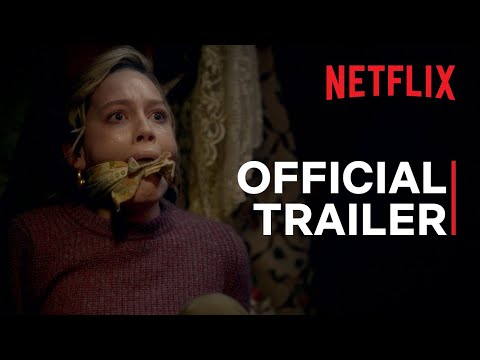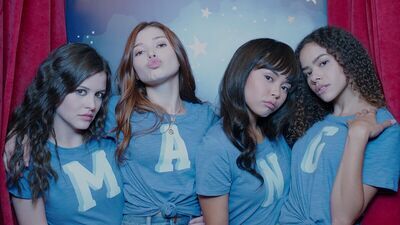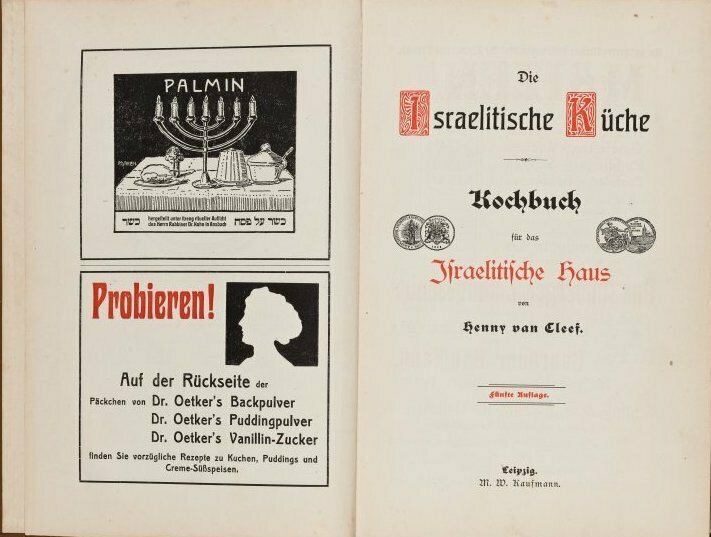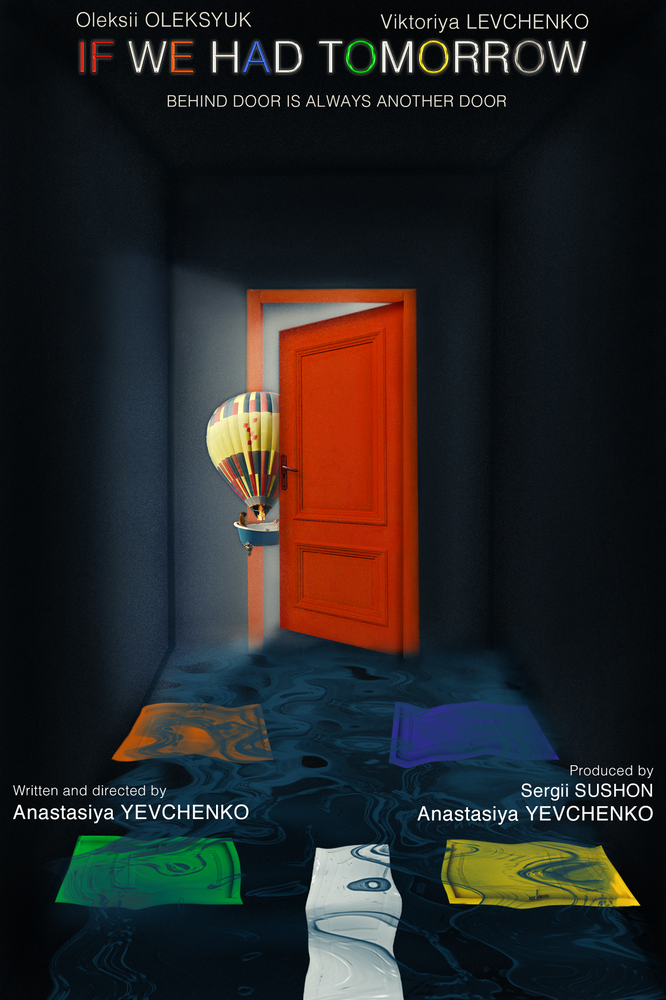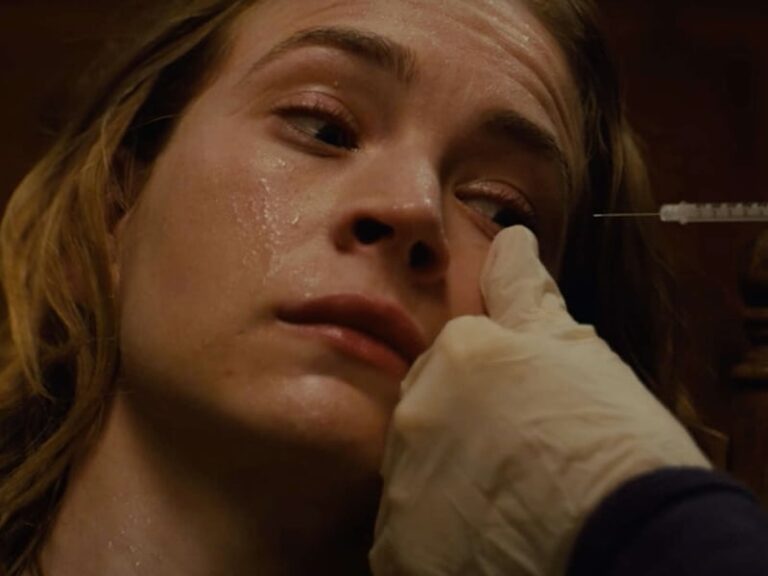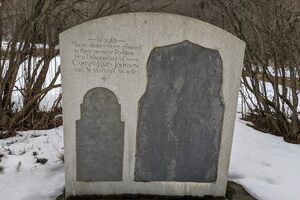The Miseducation Of Rudolph The Red-Nosed Reindeer, A Legitimate Gay Icon
We’re all familiar with the Rankin & Bass stop-motion Christmas specials, including the most famous of them, Rudolph the Red-Nosed Reindeer. And while it’s one thing to put it on and idly enjoy a candy-cane holiday tale about an outcast reindeer teaming up with other misfits and ganging up on a yeti to win Santa’s approval, it’s another to recognize the film for what it truly is: a deep, complex examination of the ostracization of LGBTQ+ people.
The Reindeer’s History
Children’s programming, especially Rankin & Bass Christmas specials, is no stranger to subtext. Frosty the Snowman now reads as a metaphor for the traumatic inevitability of climate change, The Year Without a Santa Claus is an allegory for the Nixon administration, and Santa Claus Is Comin’ to Town recasts Santa as a Christ figure and posits that Jesus could have stopped the Holocaust. (But that’s another article entirely.) So it’s not such a huge theoretical leap to imagine Rudolph as a queer Quixotic narrative about the quest for belonging in a world that doesn’t want you.
The character was born long before the special’s first airing in 1964, though; Rudolph began life as a children’s book on the heels of the Great Depression, then the character was reborn in a hit Gene Autry song in 1949. Then, he breached the DCEU, appearing in several DC Comics titles throughout the 1950s in which the reindeer shows up with a big jolly grin; flushed cheeks; a lithe, curvy form; and long, feminine eyelashes, exuding some pretty huge queer energy.
The take that Rudolph is secretly a coming-out narrative, meanwhile, has made the rounds every Christmas for years now, including in The New Yorker in 2014, then in The New York Times, Vulture, and most recently, The Nation. Screenwriter Romeo Muller probably wasn’t gunning to make Brokeback North Pole here, but regardless of authorial intentions, Rudolph is gay. Like, really, really gay. And so are most of his friends.
Reindeer Games
The story of Rudolph is a celebration of the outcasts, yes, but what makes it gay? The story begins with Rudolph’s birth, whereupon Donner, homophobe and general bad dad, sees his son’s shiny nose and immediately cries, “How can we overlook that?!” Rudolph’s red nose immediately becomes a symbol of his nonconformity, an externalization of the queerness inside. It’s the telltale sign to others that Rudolph isn’t “One Of Them”, and it isn’t until Rudolph’s nose is revealed that the gay-bashing starts. Donner tries to cover it up with mud before Santa arrives.
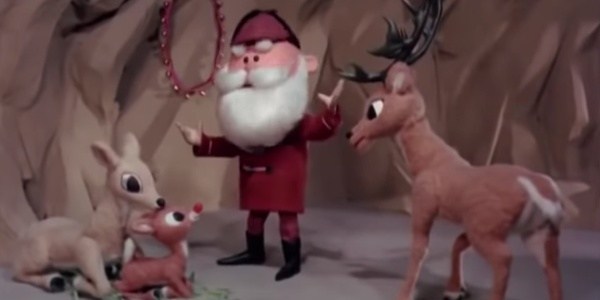
Santa’s a huge dick in Rudolph. All of Christmastown, as the North Pole is called in the film, is basically just his luxe castle, rising out of the snow. The reindeer, who seem to represent about half of Christmastown’s population, are treated as second-class citizens, and there’s an uncomfortable master-servant dynamic whenever Santa comes near them. As the ultimate patriarchal and governmental authority in the land, Santa’s oligarchal presence can easily stand-in for the American government, or for the forces of capitalism — you can really take your pick. When he tours the serfdom and meets Rudolph, he only considers the little buck as a future employee — “He’s going to be on my team someday,” he intones, calling Rudolph a “sturdy little fellow.”
But when he sees the glowing red nose, Santa loses it, and Donner hurriedly tells him words I’m sure most queer kids in unsupportive environments have heard many times: “I’m sure he’ll stop as soon as he grows up.” After Father Capitalism leaves, Donner tells his son, “You’ll be a normal little buck like everyone else!”
Cut to several months later, after Donner’s been trying to re-educate his child with foraging and combat lessons. Rudolph is off to reindeer training, where he meets Clarisse, a doe who simps hard for him, and he’s elated when she calls him cute. So much so that his eyes go buggy and he takes off for the first time. But Rudolph’s cover isn’t blown yet. It’s when he gets into a playful physical scuffle with fit blonde guy reindeer Fireball that he gets outed. As they lock antlers, Rudolph accidentally lets the nose cap slip, showing the world his big gay secret. After an entire childhood in the closet, Rudolph’s queerness is out, and he’s relentlessly, savagely bullied by his peers until he retreats into the tundra.
Hermey Fully Loaded
Meanwhile, at a sexless elf commune in the basement of Santa’s palace, Hermey the elf decides he doesn’t want to make toys anymore, breaking a presumably centuries-long tradition of elves only making toys. Hermey has a lisp, feminine red lips, and perfectly coiffed blonde hair, while the other elves all look like poindexters and pushovers.
The reindeer and elf societies are fiercely heteronormative, with reindeer training enforcing gender roles and tremendous social pressure placed on mating. In elf society, girl elves exclusively wear pink and boy elves, blue. Elf dancing emphasizes boy-girl pairings, and most of Hermey’s fellow elves spend their time ogling the women. It’s all we see of elf society, really. That and the crushing weight of capitalism. Hermey’s rejection of the traditional elf lifestyle, therefore, also encompasses his rejection of heteronormativity.
Hermey also has a homophobic, unsympathetic Donner figure. The Head Elf, the sort of foreman at the workshop, doesn’t care about Hermey’s dental ambitions and instead treats him as another pair of toy-making hands on the brutal hells-cape of Santa’s relentless assembly line workforce. Dissatisfied with living under Santa’s boot heel, Hermey breaks out of a workshop window and power-jogs into the woods.
He meets Rudolph, and at the first official meeting of Christmastown’s Gay Liberation Front, they sing about how society is sadly not created with queer people in mind. After about a minute of knowing Rudolph, too, Hermey hops on his back and mounts him like a horse.
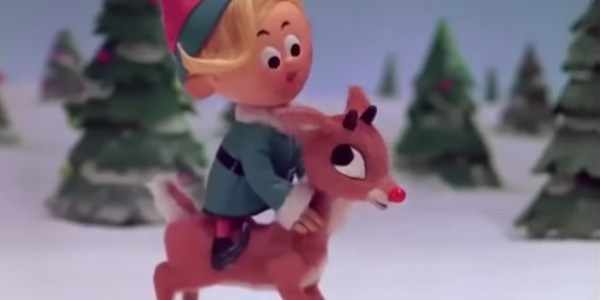
They sing “We’re a Couple of Misfits,” deciding they’re better off repudiating societal norms and taking their chances in the wilderness than they are rigidly conforming to the ruling elite’s paradigm. Extending a middle finger to the corrupt conformist state, they saunter off together into the snowy expanse.
Hermey and Rudolph make for interesting queer leads because their motivations are not to fully realize their identities and their ambitions. Rudolph doesn’t end with Hermey opening up a dental practice in Winnipeg. Though they turned their backs on the community they were raised in, they each remain intimately attached to their home, and they wander the North Pole with seemingly no plan to develop lives of their own, powered solely by spite. You can tell they’re each planning to go back to Christmastown eventually, albeit with nipple piercings, painted nails, and books about Marxism tucked under their arms. So thank God they come across Yukon Cornelius.
Yukon Is Burning
Yukon Cornelius, possibly one of the best characters ever created for television, is positively bursting at the seams with huge bear energy. He’s a big gay prospector, someone so loaded with hyper-masculinity that it cascades over into queerness. Yukon, the campy butch we’ve always needed, licks his pickaxe when prospecting for silver and gold, he’s theatrical and goofy, and he loves to sing. He’s out there alone with his sled dogs, where he apparently just invents songs about the gold rush and shouts at his pets. The real kicker is that Yukon is a bad prospector — he’s never actually found any silver or gold, nor can he get his dogs to mush.
Even if his hyper-masculinity doesn’t convert into job skills, Yukon still blossoms in the Arctic, free from a society that otherwise wouldn’t embrace his queerness. When the narrator asks, “So what do you think of our friend Cornelius?” I stopped. What does the narrator expect us to notice about Cornelius? The domineering stance, the discerning glare, or those big, burly arms that could easily tie a man up into a knot and fuck him seven different ways?
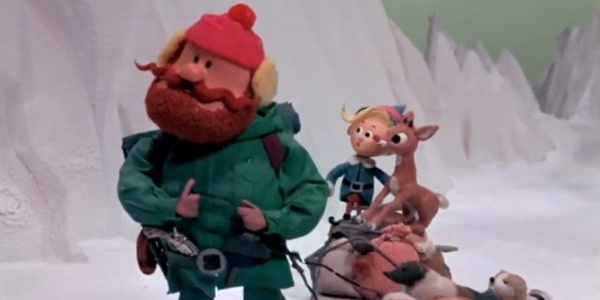
With their unlikely fellowship solidly established, Rudolph and Hermey are finally content to be out on their own, away from a society in which they’d have to pretend, to cover up their true identities in favor of heteronormative reindeer games and asexual toy making. They eventually wend their way around to the Island of Misfit Toys.
The Island Of Queer Outcasts And Lion Jesus
Some interpretations of Rudolph have likened the Island of Misfit Toys, which has no basis in the classic song, to be an ominous, disquieting symbol for Rudolph and company — this is the consequence of leaving society and trying to make it on your own. Endless cold nights huddled around a bonfire, bereft of the love of children. But I think it’s closer to a paradise, a colony free from gay-bashing and discrimination on the basis of gender and sexuality, a place that encourages newcomers to feel welcome and to express themselves.
When the gang arrives at the island, they’re greeted by Charlie-in-the-Box, who sings, “A jack-in-the-box waits for children to shout./ Wake up! Don’t you know it’s time to come out?” The reject toys all proudly display their sexuality like a badge of honor. Everyone on the island, from the jelly-shooting water gun to the ostrich-riding cowboy (hold up… especially the ostrich-riding cowboy) is unabashedly gay. Again, not just because Charlie, the cowboy, and the pink-spotted elephant welcome and embrace the outsiders, but because as “misfits,” they’re defined by everything Christmastown society isn’t: openness, independence, and sexual liberation.
The toys are led by Lion Jesus (though in the script, he’s named King Moonracer, which is the most D&D shit I’ve ever heard). Lion Jesus has the same voice actor as Santa (Stan Francis) encouraging us to see the island as not a hellish netherworld, but as an upside-down Christmastown, a place founded on tolerance rather than on exploitation and Puritanical prejudice.
There’s a lot of this interesting doubling that happens in Rudolph. Francis voices Santa and his foil, Moonracer, while Charlie-in-the-Box is voiced by Alfie Scopp, who also does Fireball, the young buck who accidentally outs Rudolph at the North Pole. Scopp also voices various elves. Carl Banas, the Head Elf, also doubles for some of the other misfit toys. The doubling creates an alternate reality on the island; the voices of intolerance in Christmastown are converted into queer friends for our heroes.
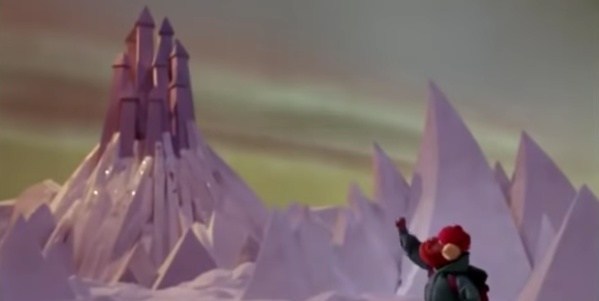
The gang goes to Lion Jesus’ castle. (In case you haven’t picked up on the whole gay thing by now, Moonracer’s castle is basically a bouquet of penises reaching toward the sky.) Moonracer invites them to stay the night, in a pink guesthouse outfitted with pink blankets, pillows, and curtains.
But Rudolph, for plot purposes, decides he needs to flee the island and go off on his own. This is still a story from the ’60s — again, Rudolph has no desire to make it on his own and to reinvent himself. His fate is tied to Christmastown, and since this is still a rather conservative Christmas special, the story’s resolution demands that Rudolph return to the site of his trauma and ingratiate himself with Santa’s queerphobic society.
Bumbles Bounce And Also Hate Gay People
“Rudolph existed as best he could,” our narrator, Burl Ives, tells us, which… like, same. But Rudolph’s also at odds with a sinister threat, the dragon at the end of his hero’s journey. The Abominable Snowman has always been lurking behind mountains, always somewhere in the wilderness, hunting him.
If Santa represents the dominant patriarchal power over the nation and Donner the household, then the Abominable Snowman embodies the darkest, most homophobic sentiments lurking behind every governing force. Horrible, ugly, fanged homophobia.
Rudolph returns to Christmastown. He’s all grown up and has likely brushed up on his James Baldwin and feminist and queer theory. But there’s no one to share it with, as his family, including neighborhood simp Clarisse, have left the North Pole to search for him. They’ve been taken by the Abominable, and Rudolph sets out to save them.
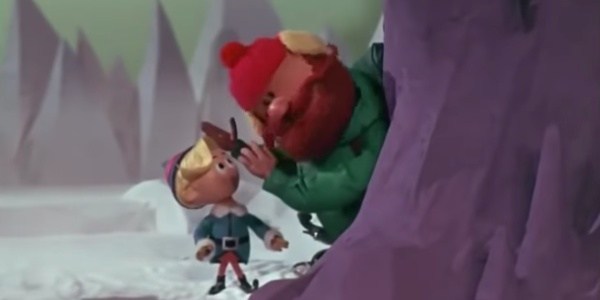
The dreamlike scene where Rudolph confronts the Abominable and gets KO’d is like something out of Beowulf. His friends soon show up, and Hermey manages to use Chekhov’s Dental Hobby to defang the snow beast. They don’t kill him — they can’t, after all, because Bumbles bounce, Yukon tells us. The toothless homophobic monster they’re left with is a powerful, albeit sad, message, saying that though we can’t eradicate the homophobia at the heart of our systems of power, we can neuter them to diminish their influence and their threat.
(There’s also this fascinating vaginal cave imagery going on with the Abominable’s lair that mirrors the exterior shots of Rudolph’s cave at the beginning of the film. In leaving the monster’s lair victorious, Rudolph and friends are essentially reborn again, as heroes this time.)
Conclusion: Where The Rainbow Ends
Rudolph isn’t progressive. Rudolph and Hermey never try to invent a society separate from the homophobic North Pole, and even the misfit toys’ “happy ending” comes when they’re integrated into Santa’s values system and given away to loving children. Throughout, the special turns its nose at women, too, especially when Mrs. Donner (that’s really her name) and Clarisse venture off into the snow and immediately get captured by the Abominable.
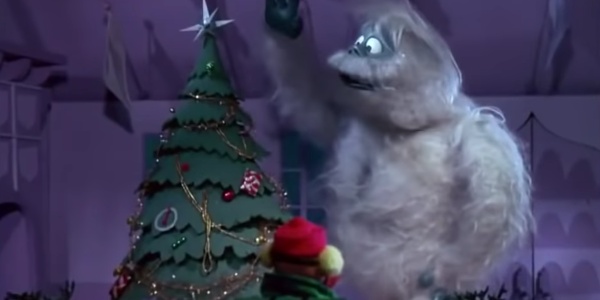
At the end of the day, Rudolph, Hermey, and Yukon are only permitted back into genteel North Pole society because they’re useful and exploitable. Rudolph’s character arc concludes with guiding Santa’s sleigh through fog and proving to his boss and his dad that queer people can be just as useful to society as straight people, which is kinda gross.
So the moral is that if you’re different, you’d better be useful or else society will throw you out — deviation from the norm will be punished unless it is exploitable, the joke goes — which is a pretty harsh message for a children’s special. But this is Johnson-era America here. Rudolph, Hermey, Cornelius — their queerness is tolerated because of their worth. The minute they stop being useful, they’ll be cast back into the shadows — a struggle many LGBTQ+ people know and relate to now.
Within Rudolph’s tinselly trappings, though, is a vein of hope. The song “There’s Always Tomorrow,” which Clarisse sings for Rudolph, is about the tides of change. Specifically, it’s about Rudolph’s crisis of sexual identity and the insistence of Donner and Santa that his queerness is something he’ll grow out of. She sings, “We all pretend/ The rainbow has an end/ And you’ll be there my friend someday.” There will come a day when Rudolph can stop pretending to be someone he isn’t. The rainbow doesn’t have an end. For a special that doesn’t always have the right message about queerness, that feels pretty accurate. After all, we can’t all run off to the North Pole to become unstoppable, gold-mining, hairy-chested shag-daddies like Yukon Cornelius.
What do you think? In the subgenre of queer Christmas movies, is Rudolph better than, say, Happiest Season? Comment below!
Does content like this matter to you?
Become a Member and support film journalism. Unlock access to all of Film Inquiry`s great articles. Join a community of like-minded readers who are passionate about cinema – get access to our private members Network, give back to independent filmmakers, and more.
Join now!
